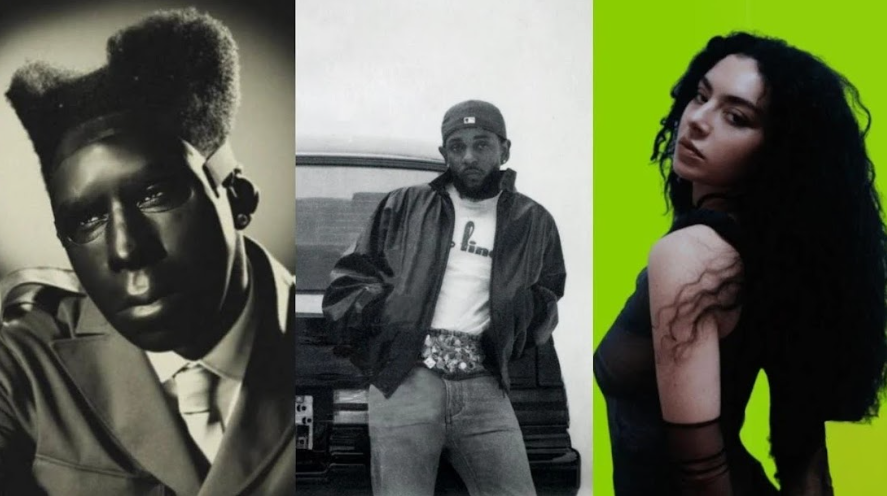KOSA ( Kids Online Safety Act). You’ve probably heard this term while scrolling through TikTok, or a random X post. You’re probably wondering what KOSA is and why is everyone talking about it.
KOSA will affect millions of teens, content creators, and social platforms both negatively and positively. However, there’s more risk than reward when it comes to this bill, as it risks the relationship between families and their use of the internet and more.
What is KOSA?
Originally proposed by Richard Richard Blumenthal and Marsha Blackburn in February 2022 KOSA (Kids Online Safety Act) would’ve required social media apps to protect people under the age of 14 from harmful material.
It failed to gain any traction until May 2023. The reintroduced bill requires that any algorithms that the websites use for children be abandoned and reworked. Additionally, they’ve increased the age limit from 13 to 17-year-olds. Additionally, the bill hopes to give parents and social media platforms the tools they need to protect the children from content that poses a risk to the physical and mental well-being of minors.
The Potential Harm for KOSA and Families
KOSA’s main goal is to filter the content minors see. KOSA wants to filter out content deemed by the government that is inappropriate for minors. This bill is taking a lot of initiative when it comes to how the internet is managed in each home.
Some parents don’t monitor their children’s devices or the content they look at. They simply provide them with the device and let them do whatever they want on the internet.
KOSA is going to give parents the needed tools to help monitor their children on their devices; however, Jessica, a mom of 4 kids, thinks otherwise.
She said, “I find it to be more difficult because it could possibly add more strain to the relationship with my child because where my child wants to be respected and put in a place where they can be responsible with the internet. But now I need to micromanage what this bill is trying to manage; the internet and the content on it.”
KOSA may possibly create conflict in the household between the parent and child. It takes away the feeling teens get when left with the responsibility of using the internet.
And understandably, I think so too. If teens decide to want to use an app, and suddenly the content they’re used to looking at isn’t there anymore, 9 times out of 10 it’ll leave the teen questioning, leading them to ask their parents questions.
Jessica believes that “parents still have a say and a right to how they want to introduce and allow their kids to be on the internet, and what they see on the internet.”
I don’t think the bill should decide what kids see on the internet, it should be the parents. This bill is taking a lot of initiative, taking up the role of the guardian in the household.
“It’s micro micro-managing. With the government, you have so many bigger issues like avoiding war, human trafficking, and avoiding government shutdowns and now you want to tell parents what their kids can and can not look at on the internet,” Jessica stated.
It’s a fair point – the government is supposed to manage society, and its flow of income, new laws pertaining to society, and more. They should not manage the ideal relationship between kids, parents, and the internet.
Although KOSA will act as an assist to parents, and a thorn for students/minors, in a way this bill is dictating what is inappropriate and appropriate for children that they barely know.
Overall, this is just to say that this bill comprises the bond between parents and teens because of how KOSA is going to regulate the internet.
What are Teens Usually Doing On The Internet?
Technology with teens is used differently for everyone. it may be a main source of work or research, while another person might use it for fun and games. But overall, teens still use the internet for whatever reasons they have.
However, this bill is somewhat of a content restriction, restricting content that according to Richard and Marsha, harms the physical and mental well-being of teens.
Freshman Alina Haywood said, “I usually watch comedy art and conspiracy theories, I’m not usually looking for content out of my interests.”
My device is monitored by my parents which is both a blessing and a curse. I have a set amount of time on my phone each day and there are certain times when I’m allowed to use my phone. But this time limit doesn’t restrict the content I look at.
I still have algorithms and recommended content on my page. The content I see is mostly art, memes, and any news on video games. Additionally, the things I post are usually art-related, and sometimes memes.
Furthermore, I was taught internet safety from both my parents and schools, that certain interactions online shouldn’t be talked about, and if something harming my safety is taking place online, then put my phone down.
We wouldn’t need this bill if schools and parents were taught internet safety, and how to introduce the concept of internet safety to minors.
Sophomore Thaddeus thinks “My device doesn’t need to be monitored, I was taught internet safety, stay away from dangerous websites, etc. If my device was monitored I would feel very isolated and feel like my privacy isn’t completely my own.”
All in all, I think the adults and schools should be taught what internet safety is, and from there the adult or school can decide how they want to introduce kids to internet safety.
My thoughts on KOSA
It’s a mixed bag for me when it comes to this bill. On one hand, I kind of understand where the bill is coming from -it’s trying to help the teens and their safety on the internet. However, the way they are going about it is what I really dislike.
I think outright banning and restricting certain content is a no-go. It’s censorship which is bad for both content creators and the consumer limiting the potential knowledge teens could be gaining. Additionally, it will affect the content teens are watching, recommending content that may or may not be unique to them.
Content creators are forced to make content deemed “appropriate” by the bill so they aren’t promoting content that harms the physical and mental well-being of teens.
More things that are compromised by KOSA are social media platforms.
If apps that connect to the internet and collect data based on what you view are recommending content to you, and that content is deemed inappropriate by the bill, then it leaves the company liable for “feeding teens inappropriate content.”
One of the key issues is that the bill doesn’t specify what’s appropriate vs inappropriate content for teens, additionally what content they’re specifically banning.
I think the vagueness of the bill is what’s causing people to think that “Kosa is bad,” which still is, but also has some benefits.
Teens with this content restriction are more likely to not be on the internet as much, and “touch grass.” If everything they watch is filtered, monitored, and affected by the bill’s definition of “inappropriate content,” there’s less incentive to use social media and the internet as there is much less variety of content being looked at.
Additionally, it most likely will help teens’ mental health, because once again, there isn’t much variety of content, including content that may pose a risk to minors’ mental and physical well-being.
This goes back to my main point that the key issue of this bill is that it’s too vague in the fact that we don’t know what content poses a risk to teens’ health, but we know that there’s a risk. There is such a variety in content that this bill doesn’t know is restricted based on the definition of “inappropriate content.”
Conclusion
KOSA is meant to protect minors from hurtful content, as well as give both kids and adults the tools to protect their privacy online.
KOSA is supposed to help and protect minors on the internet, however, it hurts so many groups of people that there is a greater risk than reward.
It leaves social media platforms responsible for anything kids do on their apps, limits the amount of video variety because of the vagueness of the bill and lastly, it hurts teens as content deemed harmful to minors physically or mentally will be taken down, limiting certain information if it invokes those feelings.
Like Jessica said, “With the government, you have so many bigger issues like avoiding war, human trafficking, and avoiding government shutdowns and now you want to tell families what they can and can not look at on the internet.”













